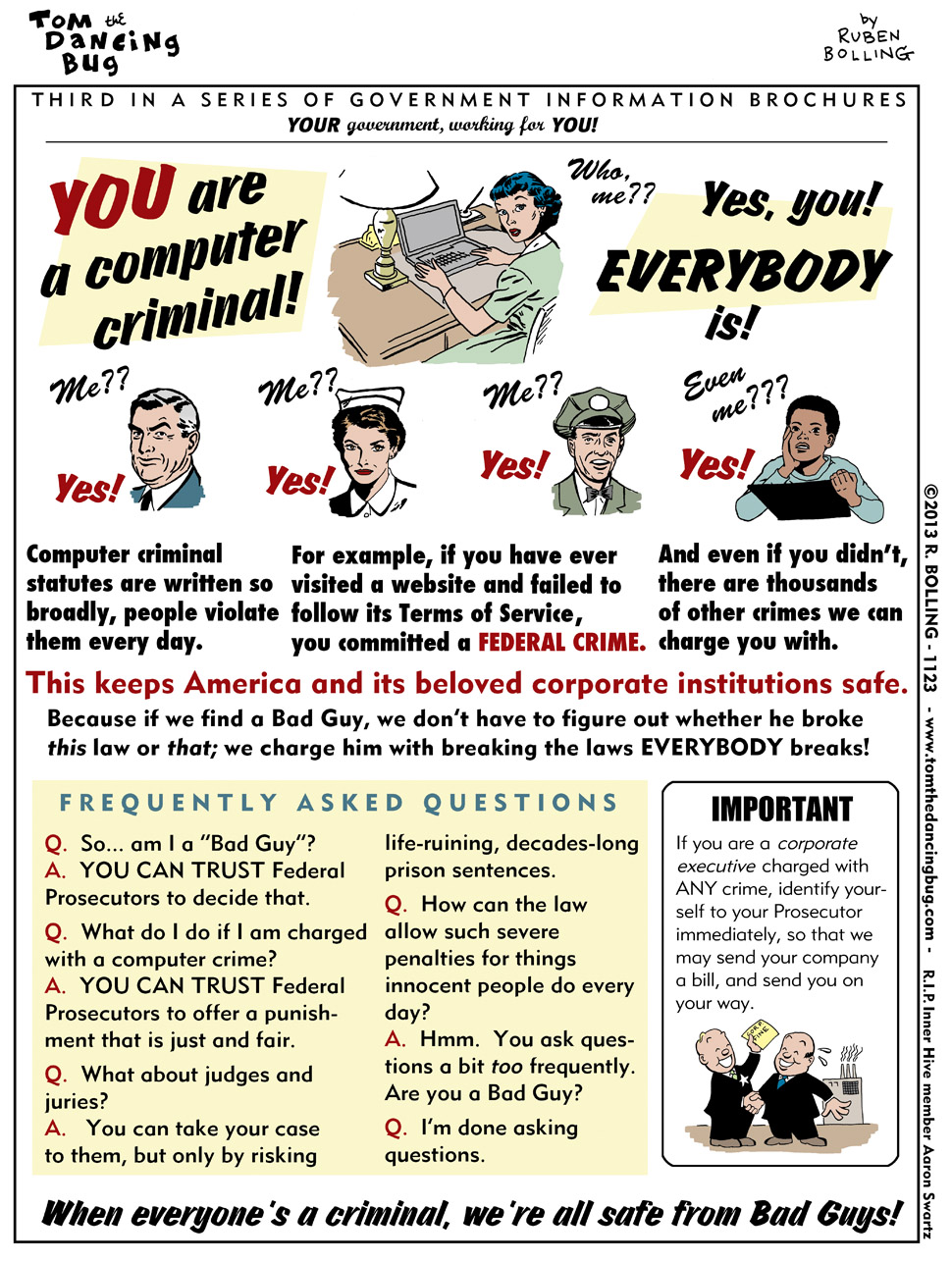Monday, May 6, 2013
Monday, April 8, 2013
Streisand Effect > Government of France
The Streisand Effect made a rather powerful government its bitch last weekend. Expect more of this type of thing as the internet becomes ever more encompassing over society.
In April 2013, the radio station attracted attention after the French interior intelligence agency Direction centrale du renseignement intérieur (DCRI) attempted to have an article about the facility removed from the French language Wikipedia. The Wikimedia Foundation asked the intelligence agency what precise part(s) of the article were a problem in the eyes of the intelligence agency, noting that the article closely reflected information in a freely available television broadcast. The DCRI refused to give these details, and repeated its demand for deletion of the article. The Wikimedia Foundation refused to delete the article, and the DCRI pressured Rémi Mathis, a volunteer administrator of the French language Wikipedia and resident of France, into removing the article. The administrator, an employee of the state-owned Bibliothèque nationale de France and president of Wikimédia France, obeyed. According to a statement issued by Wikimédia France on 6 April 2013:
The DCRI summoned a Wikipedia volunteer in their offices on April 4th [2013]. This volunteer, which was one of those having access to the tools that allow the deletion of pages, was forced to delete the article while in the DCRI offices, on the understanding that he would have been held in custody and prosecuted if he did not comply. Under pressure, he had no other choice than to delete the article, despite explaining to the DCRI this is not how Wikipedia works. He warned the other sysops that trying to undelete the article would engage their responsibility before the law. This volunteer had no link with that article, having never edited it and not even knowing of its existence before entering the DCRI offices. He was chosen and summoned because he was easily identifiable, given his regular promotional actions of Wikipedia and Wikimedia projects in France.
Later, the article was restored by another Wikipedia contributor. The French ministry of the interior told the Agence France-Presse that for the moment it did not wish to comment on the incident.] As a result of the controversy, the article became the most-read page on the French Wikipedia, with over 120,000 page views during the weekend of 6/7 April 2013. It was translated into multiple other languages. The French newspaper 20 minutes, Ars Technica, and a posting on Slashdot,[15] noted it as an example of the Streisand effect in action.
Friday, February 1, 2013
Tuesday, January 8, 2013
Your Tax Dollars at Work
The goober at the beginning of the video really inspires confidence with his "Run, Hide, Fight" advice. Does he mean these separately, or sequentially?
There is advice like turning off the ringtone and vibration on your cellphone. It probably cost $100,000 to get that one suggestion from conception to publication. At the end of the video, they have tips on how to fight back, including such wisdom as "Commit to your actions." Spencer Collier approved this video. He thought it was a good idea. And he is the big boss of the Alabama Department of Homeland Security.
He's worse than worthless, he's detrimental. They all are. This is their standard operating procedure. Get rid of all of it.
Thursday, January 3, 2013
Iceland Denies Girl The Right to Use Her Own Name
Iceland's Ministry of Love is DoublePlusGood:
A 15-year-old is suing the Icelandic state for the right to legally use the name given to her by her mother. The problem? Blaer, which means "light breeze" in Icelandic, is not on a list approved by the government. Like a handful of other countries, including Germany and Denmark, Iceland has official rules about what a baby can be named. In a country comfortable with a firm state role, most people don't question the Personal Names Register, a list of 1,712 male names and 1,853 female names that fit Icelandic grammar and pronunciation rules and that officials maintain will protect children from embarrassment. Parents can take from the list or apply to a special committee that has the power to say yea or nay.
2012: Best Year Ever?
The Spectator claims that 2012 was the best year in the history of mankind. They make a good, if not compelling, case. 2012 was definitely a good year for me personally. I wonder if 2013 will be even better?
It may not feel like it, but 2012 has been the greatest year in the history of the world. That sounds like an extravagant claim, but it is borne out by evidence. Never has there been less hunger, less disease or more prosperity. The West remains in the economic doldrums, but most developing countries are charging ahead, and people are being lifted out of poverty at the fastest rate ever recorded. The death toll inflicted by war and natural disasters is also mercifully low. We are living in a golden age.

